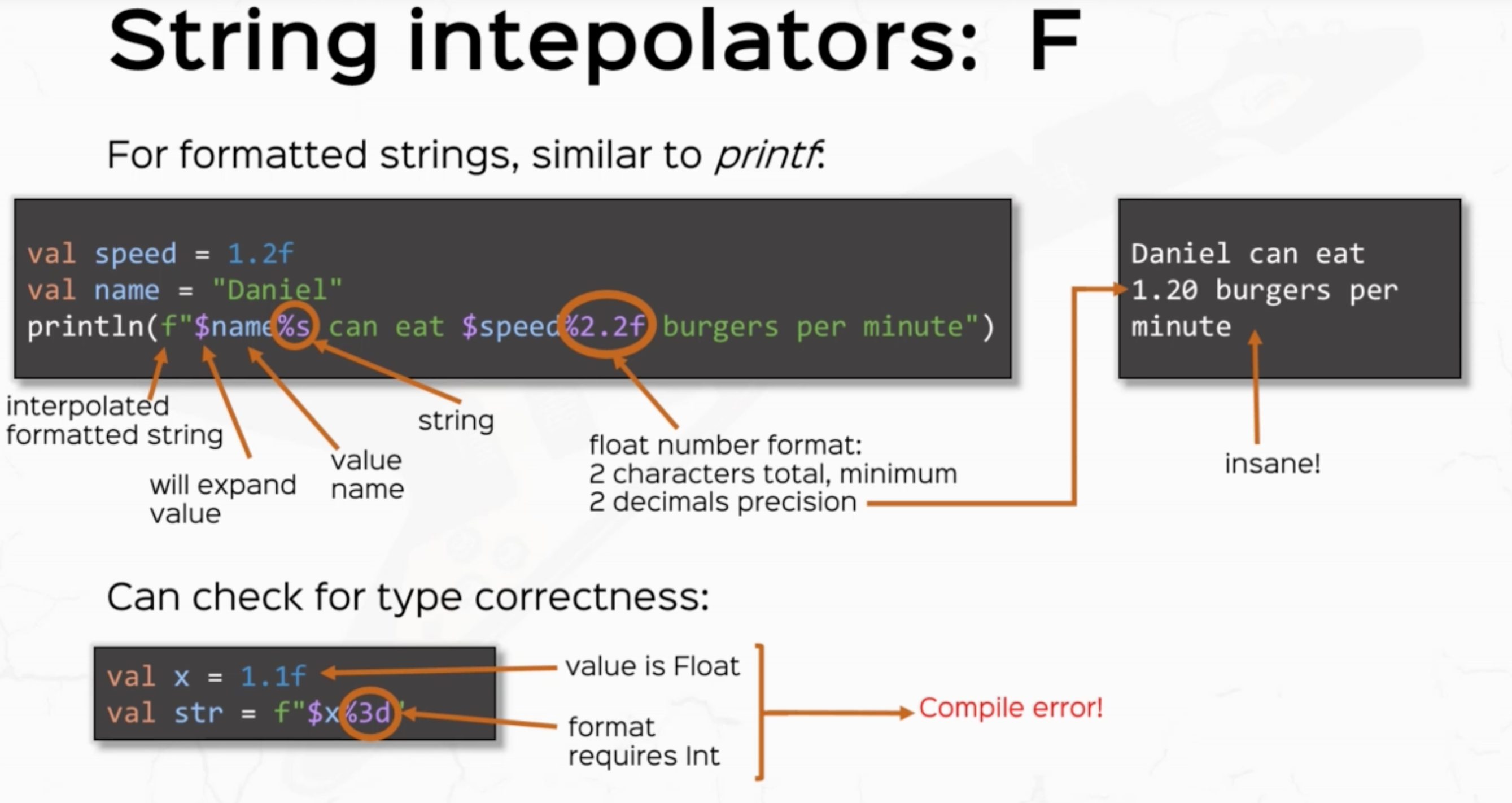ScalaSchool
String Interpolation
String interpolation (or variable interpolation, variable substitution, or variable expansion) is the process of evaluating a string literal containing one or more placeholders, yielding a result in which the placeholders are replaced by their corresponding values. It is a form of simple template processing or, in formal terms, a form of quasi-quotation (or logic substitution interpretation). String interpolation allows easier and more intuitive string formatting and content-specification compared with string concatenation. More
## String Interpolation in Popular Languages
// JavaScript
const appleCount = 4;
console.log(`I have ${appleCount} apples`);
// Kotlin
val appleCount = 4;
println("I have $appleCount apples")
// swift
let appleCount = 4
print("I have \(appleCount) apples")
String Interpolation in Scala
// Scala
val appleCount = 4
println(s"I have $appleCount apples")
So far so good, this looks pretty standard! However, Scala provides
multiple string interpolators,
s, f, raw, """ and easily allows you to write custom interpolators!

/* Custom Interpolator
Here we define custom string interpolator `date` so that you can define a
java.time.LocalDate as data"$year-$month-$day"
*/
implicit class DateInterpolator(val sc: StringContext) extends AnyVal {
def date(args: Any*): LocalDate = LocalDate.of(
args(0).toString.toInt,
args(1).toString.toInt,
args(2).toString.toInt
)
}
val year = 2020
val month = 9
val day = 22
val fancyDate: LocalDate = date"$year-$month-$day"